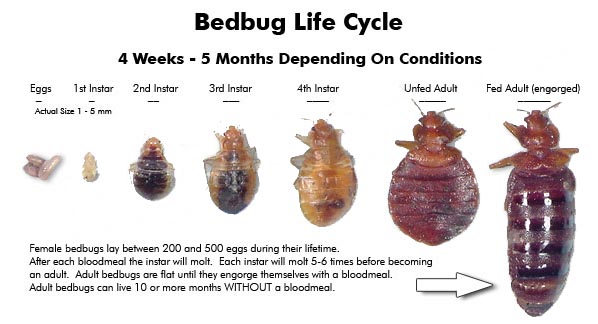You might be hearing a lot about bed bugs these days. While these pests were almost eradicated in the 1950s in much of North America, they’ve made a serious comeback in the past couple of decades.
Since people are now traveling around the world more than ever, bed bugs have hitched a ride back into our lives. Bed bugs can cause a variety of problems for you, so it’s worth knowing the risks involved when they invade your space.
Signs of a Bed Bug Infestation
Unfortunately, bed bugs are pests that like to get up close and personal with humans, and so the first signs you have bed bugs will be the marks they leave on your skin as they feed.
While these marks or bumps might be itchy, they don’t generally pose a threat to your health. In fact, the psychological impact of bed bugs greatly outweighs any physical harm they can cause.
However, this doesn’t mean the psychological dangers of bed bugs should be taken lightly. People can suffer extreme anxiety and distress over a bed bug infestation. There are even some rare cases of people becoming suicidal.
The Physical Dangers of Bed Bugs
Since bed bugs feed on human blood, it’s normal to be concerned about the spread of disease. Fortunately, there is no evidence that bed bug bites spread any disease to humans.
As with most insect bites, physical reactions depend on the individual. In some cases, people barely notice the bites, while others might have a serious allergic reaction. The bites, while normally tiny, can also be exacerbated by repeated scratching.
In a few rare cases, people have had asthmatic reactions to bed bug skins which are left behind when they shed.
Bed bug bite marks normally come in clusters, often in a line of 3 or more tiny red bumps. If you notice any bites and don’t remember being bitten by an insect, you might have a bed bug infestation. It’s best to call a professional exterminator immediately in this case.
The Psychological Impacts of Bed Bug Infestations
Generally speaking, the psychological distress caused by bed bugs is a far more serious concern than their physical impacts. For example, just the thought of having bed bugs can cause one to suffer psychological distress.
A Canadian study looking at the mental health implications of bed bug infestations concluded that residents whose homes have been infested by bed bugs are much more likely than others to experience anxiety disorders, trouble sleeping, and in some cases depression.
According to Dr. Stéphane Perron, people with bed bug infested bedrooms are mostly disturbed by the fact they are helpless to defend themselves from being bitten as they sleep.
Social Implications of Bed Bug Infestations
There is also a social stigma associated with having bed bugs. Some people associate them with dirty living conditions or poor maintenance, which is unfair. Bed bugs simply move from one place to the next in luggage or furniture regardless of the cleanliness of their surroundings.
Once their friends and family become aware of a bed bug problem, victims can often feel social isolation which can further contribute to anxiety and depression.
Staying Informed
In the end, the best way to deal with bed bugs is awareness and prevention. Find out if the places you stay in have even had bed bug infestations using resources like the bed bug registry. Finally, if you do suspect you have bed bugs, don’t try to tackle the issue on your own. A bed bug infestation will always require the intervention of a bed bugs professional. Don’t hesitate to call one as soon as you suspect the presence of bed bugs in your home or business.
Related Posts

Loves home. I am here to provide how to make your home a much better place. 🙂 Blogging about HomeDecor, Home Improvements and more.











